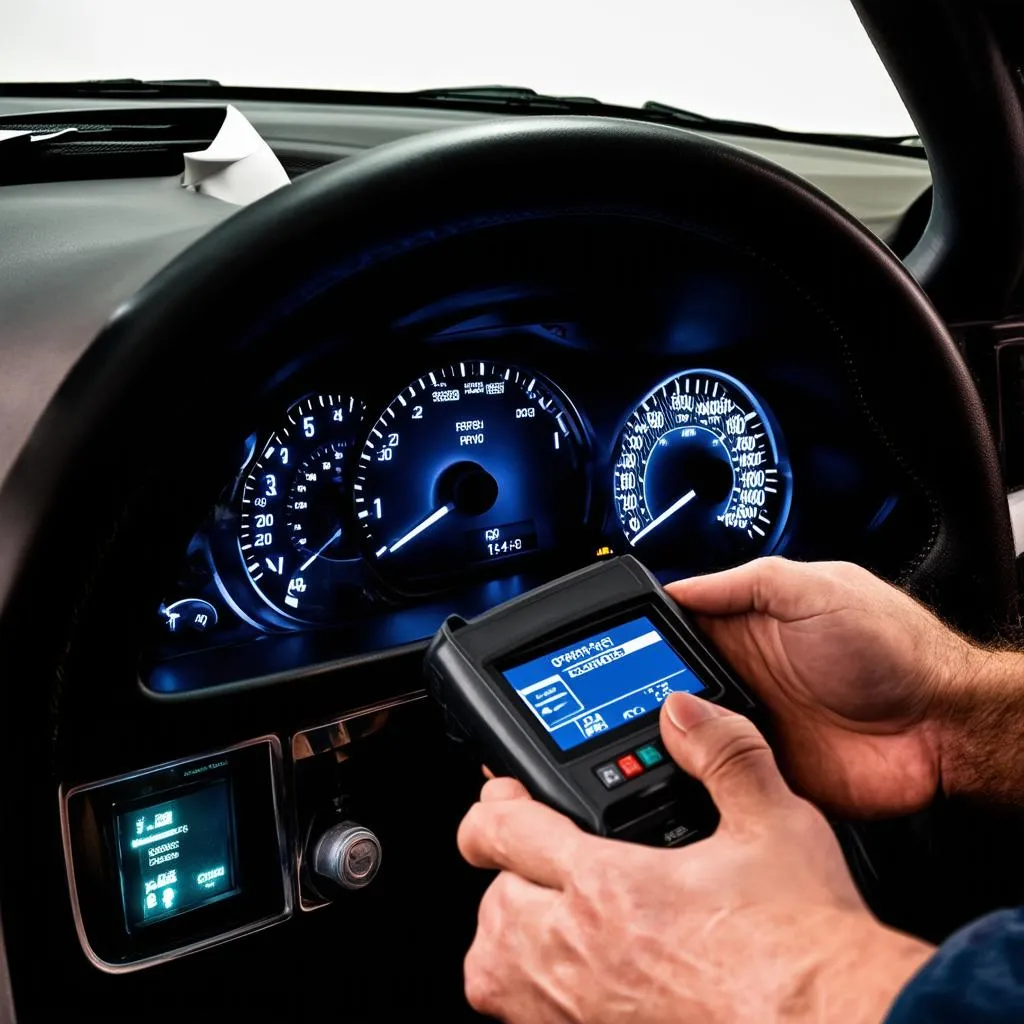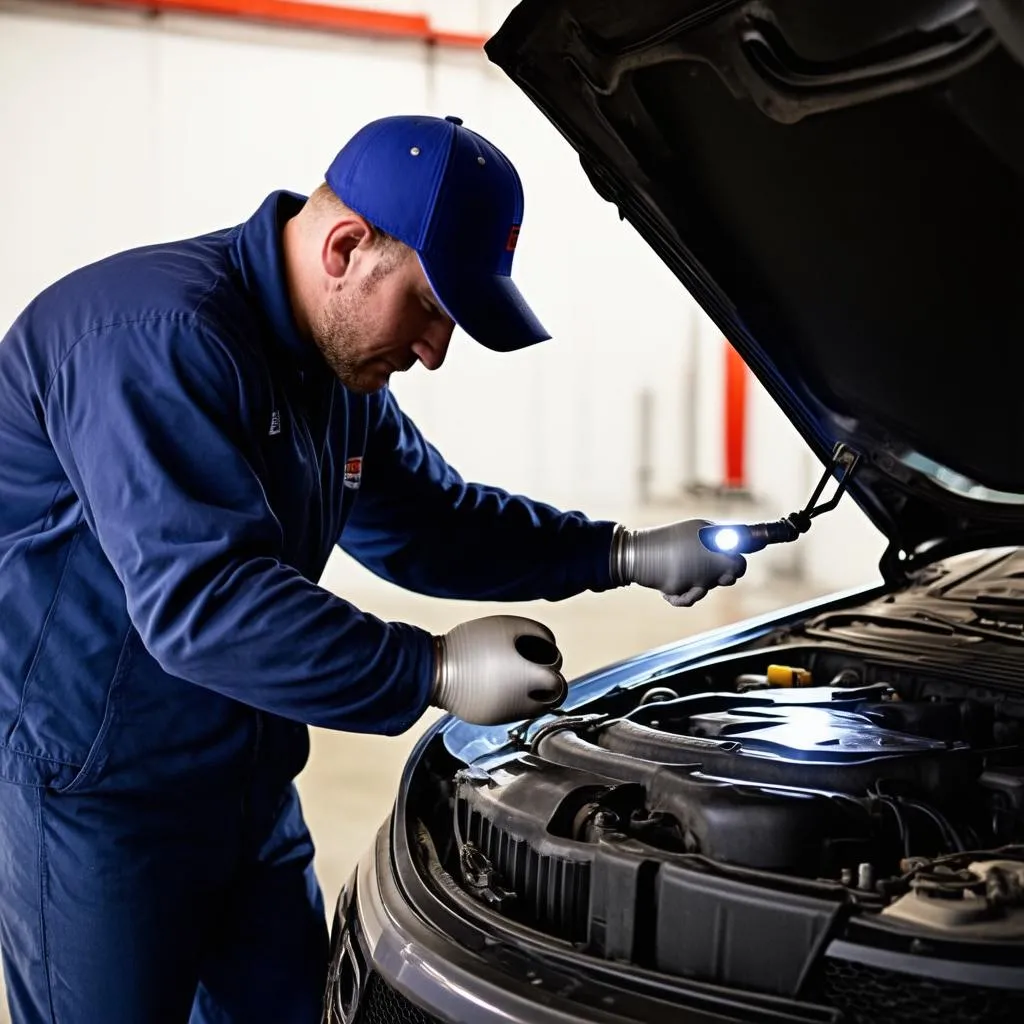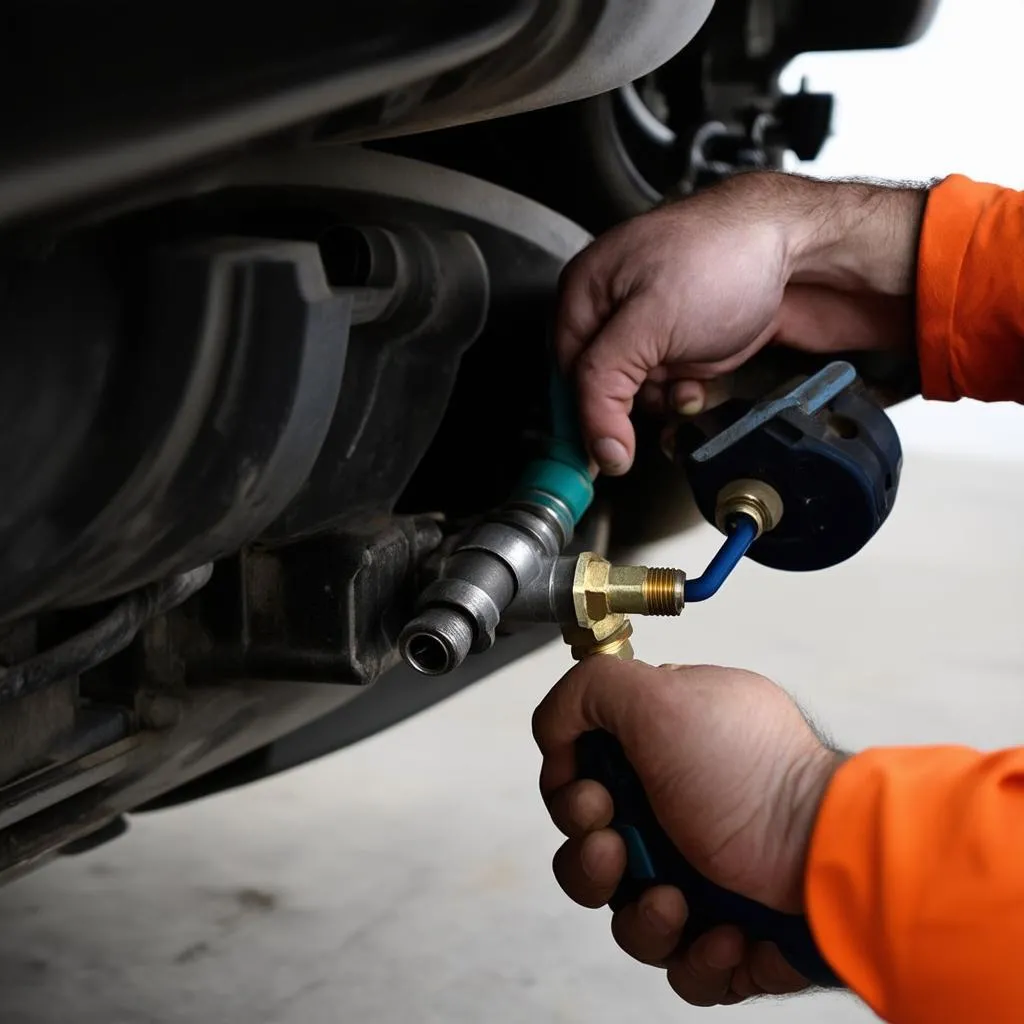Have you ever noticed that familiar “check engine” light flickering on your dashboard? The dreaded symbol that sends a wave of anxiety through even the most seasoned car owners. More often than not, it’s a simple issue, but sometimes, it can be a sign of something more serious. One common code that pops up is P0420 – a code that refers to your car’s catalytic converter. Today, we’re diving deep into the world of OBD Code P0420 to demystify this issue and empower you to understand what’s going on under the hood.
The Meaning of P0420: A Catalyst for Confusion?
The P0420 OBD code indicates a problem with your vehicle’s catalytic converter, also known as a “cat,” a vital component in your exhaust system that plays a crucial role in reducing harmful emissions. When the sensor detects that the catalytic converter isn’t working efficiently, it triggers the “check engine” light and records the P0420 code.
This code can be a bit confusing because it doesn’t explicitly tell you what’s wrong with the converter itself. It simply signals that the sensor is detecting a lack of efficiency.
Unraveling the Mystery Behind P0420: A Deeper Look
There are a few different scenarios that can lead to a P0420 code:
1. The Catalytic Converter is Actually Failing:
This is the most common reason for a P0420 code. It can happen due to a number of factors:
-
Age: Catalytic converters have a limited lifespan, and eventually, they may wear out. The age of your car and mileage can be a good indicator of whether your cat is reaching the end of its life.
-
Damage: The catalytic converter can be damaged by extreme heat, physical impact, or even the buildup of fuel deposits.
-
Fuel Mixtures: Using the wrong type of fuel or poor-quality fuel can negatively impact the catalytic converter’s performance.
-
Engine Issues: Problems with your engine, such as misfires or an overly rich fuel-air mixture, can damage the catalytic converter.
2. A Sensor Glitch:
It’s possible that the sensor responsible for monitoring the catalytic converter’s efficiency is malfunctioning, sending false readings to the engine control unit (ECU). This can cause the P0420 code even if the cat itself is perfectly fine.
3. A Fuel System Issue:
Problems with the fuel system, like a fuel leak or a faulty fuel pump, can affect the fuel-air mixture entering the engine, leading to a P0420 code.
Diagnosing the Code: Finding the Culprit
When you encounter a P0420 code, the first step is to accurately diagnose the issue.
- Inspect the Catalytic Converter: Look for any visible damage or signs of physical wear and tear on the converter itself.
- Check the Oxygen Sensors: Inspect the oxygen sensors located before and after the catalytic converter. These sensors play a crucial role in monitoring the cat’s performance.
- Run a Diagnostic Test: Use an OBD2 scanner to get more detailed information about the P0420 code and to check for other potential issues.
- Consult a Mechanic: If you’re unsure about diagnosing the issue yourself, it’s always best to consult a qualified mechanic for professional advice.
What Does It Mean for Your Car: The Practical Impact of P0420
A P0420 code can have a significant impact on your car:
-
Performance: Your vehicle may experience reduced performance, leading to lower fuel efficiency and a lack of power.
-
Emissions: The catalytic converter plays a crucial role in reducing harmful emissions, so a failing cat will result in higher emissions levels.
-
Legal Issues: Some states have strict emission standards, and failing to meet these standards can lead to fines and other legal repercussions.
Avoiding Future P0420 Codes: Prevention is Key
-
Regular Maintenance: Regular maintenance, including oil changes, air filter replacements, and spark plug inspections, can help prevent future P0420 codes.
-
Use High-Quality Fuel: Using premium fuel and avoiding fuels with additives can help maintain your cat’s efficiency.
-
Avoid Excessive Idling: Prolonged idling can lead to excessive heat buildup in the catalytic converter, potentially damaging the component.
Common Questions about P0420: Addressing Your Concerns
Q: Can I drive my car with a P0420 code?
It’s generally not advisable to drive with a P0420 code for an extended period. While your car may continue to function, the issue can worsen, causing more damage and potentially leading to costly repairs.
Q: How much does it cost to fix a P0420 code?
The cost to fix a P0420 code can vary significantly depending on the underlying cause and the model of your vehicle. Replacing a catalytic converter can be expensive, but it may be a simpler and more affordable fix than repairing other components.
Q: Can I reset the P0420 code myself?
You can reset the P0420 code using an OBD2 scanner. However, it’s important to understand that simply resetting the code doesn’t address the underlying issue. The code will reappear if the problem isn’t fixed.
Q: Does a P0420 code always mean a bad catalytic converter?
No, a P0420 code doesn’t always mean a bad catalytic converter. Other factors, such as sensor issues or fuel system problems, can also trigger this code.
A Touch of Feng Shui: Balancing Your Ride
In the realm of Feng Shui, the car represents our journey through life. A malfunctioning car, especially one with an issue like a faulty catalytic converter, can be viewed as a symbol of imbalance or stagnation in our life path.
Finding balance:
-
Clean your car: Cleaning your car can help to create a sense of order and positivity, reflecting a balanced journey.
-
Organize the interior: Declutter and organize the interior of your car, removing any items that no longer serve you or bring negative energy.
-
Use crystals: Placing crystals like amethyst or citrine in your car can enhance positive energy and promote a smooth journey.
Next Steps: Your Journey to a Healthy Ride
If you’re experiencing a P0420 code, don’t ignore it. It’s important to address the issue promptly to prevent further damage and ensure the smooth operation of your vehicle.
Ready to take charge of your car’s health?
Connect with us on Whatsapp: +84767531508 for expert advice and assistance with your diagnostics needs. Our team of automotive professionals is available 24/7 to help you troubleshoot any issues and get back on the road.
Exploring Further: Related Resources
- [Does OBD_II reader work on 1998 Chevy RV?] (https://obd2-scanner.net/does-obd_ii-reader-work-on-1998-chevy-rv/)
- [2010 Mazda 3 OBD codes using key] (https://obd2-scanner.net/2010-mazda-3-obd-codes-using-key/)
- [OBD code P0139] (https://obd2-scanner.net/obd-code-p0139/)
Let’s keep the conversation going! Share your experience with P0420 in the comments below. And remember, understanding your car’s needs is the key to a smooth and fulfilling journey.
 OBD code P0420 car
OBD code P0420 car
 Catalytic Converter Inspection
Catalytic Converter Inspection
 Oxygen Sensor Replacement
Oxygen Sensor Replacement
